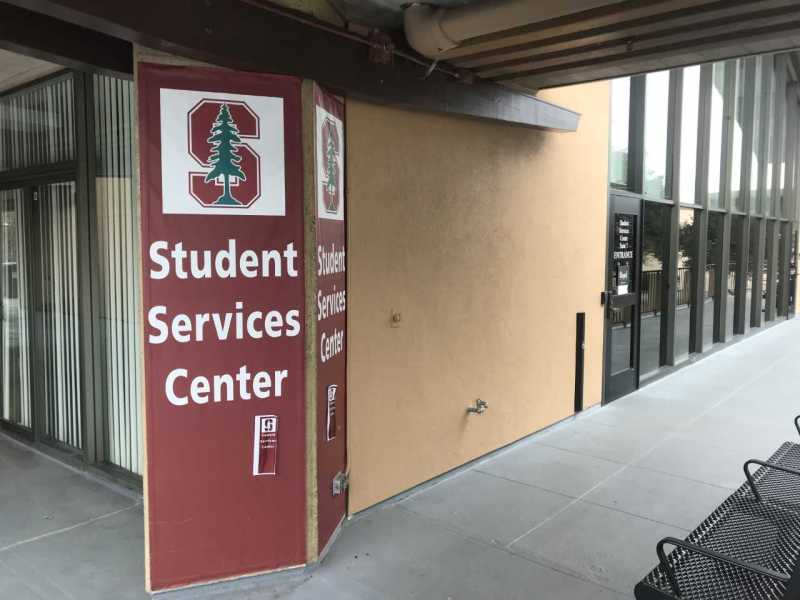Hoping to demystify the college admissions process, a group of Stanford frosh recently gained access to comments on their Stanford applications under the federal Family Education Rights and Privacy Act (FERPA) due to a delay in destroying admissions-related records. The students found that admission officers ranked their applications on a scale of one to five on various metrics, including test scores, high school records, personal qualities and interviews.
Under FERPA, both current and former students have the right to review their education records — including their college applications — within 45 days of the date a request is made. The Fountain Hopper (FoHo) — a widely circulated, anonymous student-run newsletter — made national headlines when it publicized the FERPA process in Jan. 2015. The FoHo encouraged students to ask the University for their application files, including the written assessments and numerical scores assigned to them by admission officers.
After being deluged with requests, the University began erasing records that include comments from admission officers. The new norm is that these documents are typically “expunged once a student begins enrolled attendance,” wrote University spokesperson E.J. Miranda in an email to The Daily. However, sometimes there is a delay in this deletion process, allowing some students to continue to access their records, Miranda added.
Haley O’Brien ’20 went to her FERPA appointment a few weeks ago after hearing from several frosh who had seen their admission files, only to be handed a copy of her Common Application.
“I had nothing,” said O’Brien. “No notes. Literally nothing. I was literally there for two minutes because I had nothing to look at.”
“You have a curiosity for why you’re here but it’s hard to realize it’s on paper,” said Daily Staffer Alanna Flores ’22, who found it “super easy” to make a FERPA request after hearing from a friend who had accessed their Common Application file.
In order to view application comments in person, frosh have to go to the Student Services Center on the second floor of Tresidder Memorial Union. When Rachel Kim ’22 went to view her documents, a woman instructed her to turn off her cell phone and reminded her that she had waived her FERPA rights to her letters of recommendation, she said. Kim reported receiving a file with some portions blacked out, which she surmised were her letters of recommendation.
“When you set an appointment you can choose how many minutes you want it to be, and all my friends said 20 minutes was plenty of time,” Kim said.
During Flores’ appointment, she was surprised to discover a page titled “Sibling Report.”
“In my admissions file they actually compared me to my brother [who graduated from Stanford in 2016],” Flores said. “They put his high school report in there with his GPA and a bunch of statistics about his high school.”
Daily staffer Evan Peng ’22 found the “reader notes” the most interesting part of his file, as well as the score designated for intellectual vitality.
“I thought that was really funny because intellectual vitality is a meme on Stanford’s campus,” Peng said.
Along with the summaries written by admission officers, multiple sources found that both legacy status and ethnicity are categorized into abbreviations and numbers.
Kim, who identifies as Korean, noted her ethnicity was marked “2k, 2” in her file.
“I have another Asian friend who got a 2 for his ethnicity so we think that 2 might be Asian but that’s just a guess,” said Kim, who thought that equating race to a numerical category posed an “ethical issue.”
In the interview report, Kim noticed she received a score of three out of five for “character,” despite a positive write-up from her interviewer.
“Kind of weird that my personality was given a number,” Kim said.
Last year, an analysis of more than 160,000 student records found that Harvard consistently scored Asian-American applicants lower than others on personal ratings. The report was filed by a group representing Asian-Americans in a lawsuit against the university. Stanford, along with 15 other elite universities, filed an amicus brief in November acknowledging its practice of “race-conscious” admissions in order to create a diverse student body.
However, Miranda contended in his email to The Daily that the availability of viewing comments on admissions records was “not related to the current case regarding Harvard admissions.”
Despite the questions Kim had about the meaning behind her ethnicity score, she concluded that her admission file was not “as number-oriented as people make it sound.”
“My reader one wrote 3 paragraphs about me and I think that’s more significant than numbers,” she said.
Flores, on the other hand, had mixed emotions after viewing her admission file. She remembered shedding “a small, gentle tear” as she was reading some of the comments made by the application reviewers and added that she had hesitations about recommending that other students make FERPA requests.
“I came out of reading it actually really, like, distraught because they were critical of a lot of things,” said Flores. “They kind of dig into your insecurities.”
Beginning in 2015, students who submitted FERPA requests could access their documents through NolijWeb, a third-party content management system that the University has used since 2009 to host scanned files.
A data breach in NojiWeb that allowed students to view other students’ admissions files and sensitive personal information forced the University to suspend online access to FERPA documents at the beginning of this month. Any student who requests their application materials must now make an in-person appointment to receive printed copies of their admissions documents, stored on NolijWeb.
Contact Regina Kong at reginak ‘at’ stanford.edu.
